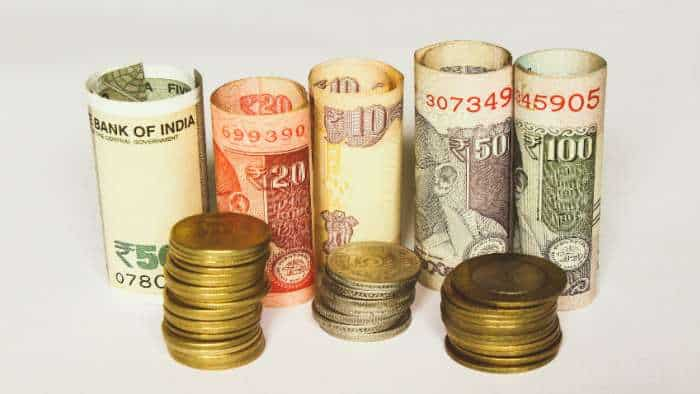Young consumers willing to spend more on sustainable products and services, finds Credit Suisse study
Young consumers' willingness to spend more for sustainable products and services find a top spot in a study published by Credit Suisse Research Institute (CSRI).

Young consumers' willingness to spend more for sustainable products and services find a top spot in a study published by Credit Suisse Research Institute (CSRI). The study also reveals that India ranks second in young consumers’ degree of engagement with sustainable products. The study reveals the preferences of the young consumers - from fashion, food to transportation.
See Zee Business Live TV Streaming Below:
The young consumers have indicated a strong willingness to alter their fashion choices, with millennials showing a greater propensity to shift to sustainable fashion than Generation Z, as per the study.
Also, the young Indian consumers are especially supportive of solar-based technology compared to other technologies, with some 80-90 per cent of respondents of the study favouring investments in solar panels.
The CSRI study revealed certain focus areas for the young consumers. These are as follows:
1) Education is key to achieve a sustainable society - The survey strongly supports the argument that creating a more sustainable world requires greater focus on educating consumers on the environmental intensity of consumer products and services. The results show a consistent positive correlation between a consumer’s engagement with sustainability and the level of sustainability-education achieved.
2) Willingness to spend more on sustainable products - The young consumers show a strong willingness to increase spending on sustainable products such as solar power, home insulation and electric vehicles. In addition to personal responsibility, young consumers feel a need for the banning and taxation of unsustainable products, as well as greater education and stricter governance and reporting requirements for corporates. The young consumers in Mexico, India and China are most willing to switch to more sustainable products while more than 15 per cent of young consumers in China and India said that they now only buy sustainable products.
3) Central role for food consumption and production - The young consumers show a strong desire to switch to a more sustainable diet, particularly focused on cutting the consumption of fast food and meat. The growth outlook for alternative food looks solid, with 66 per cent of consumers surveyed intending to increase their purchase of plant-based meat and dairy products.
4) Decline of 'fast fashion' - The past decade has seen the rise of 'fast fashion,' where clothes are sold cheaper and disposed of faster, with serious repercussions for the environment and the climate. Over 40 per cent of the consumers believe the fashion industry is unsustainable and a greater net number of respondents expect to decrease their consumption of fast fashion and luxury brands.
5) Travel and transport choices - The study found 63 per cent of all respondents expect to own electric/hybrid vehicles, more than three times the 19 per cent who currently own electric/hybrid vehicles. Over 50 per cent of respondents in China indicated they currently own an electric or hybrid vehicle; followed by India at around 29 per cent of respondents. The preference to own electric/hybrid vehicle is even greater among respondents from emerging countries, consumers with a Bachelor’s degree and above, and consumers aged 25–30 years.
6) Investment in energy-saving technologies hampered by lack of education - The young consumers in emerging countries are more likely than those in developed countries to invest in energy-saving technologies for the household. The lack of education is one of the key barriers to adopting energy-saving technologies, particularly heat pumps. In addition, respondents said they were more likely to make such investments if they can reduce monthly energy bills or better understand the environmental benefit.
Get Latest Business News, Stock Market Updates and Videos; Check your tax outgo through Income Tax Calculator and save money through our Personal Finance coverage. Check Business Breaking News Live on Zee Business Twitter and Facebook. Subscribe on YouTube.
RECOMMENDED STORIES

Top 7 Gold ETFs With Best Returns in 3 Years: No.1 ETF has converted Rs 7 lakh investment into Rs 10.80 lakh; know how others have fared

Rs 55 lakh Home Loan vs Rs 55 lakh SIP investment: Which can be faster route to arrange money for Rs 61 lakh home? Know here

Sukanya Samriddhi Yojana vs PPF: Rs 1 lakh/year investment for 15 years; which can create larger corpus on maturity?

Top 7 Flexi Cap Mutual Funds With up to 52% SIP Return in 1 Year: Rs 20,000 monthly SIP investment in No. 1 fund has generated Rs 3.02 lakh; know about others too
01:24 PM IST









 India's GDP growth to pick up in third quarter compared to first half of FY25: ICRA report
India's GDP growth to pick up in third quarter compared to first half of FY25: ICRA report GST collection grows 9% to Rs 1.87 lakh crore in October
GST collection grows 9% to Rs 1.87 lakh crore in October IMF says India's GDP growth to moderate to 7% in 2024 and 6.5% in 2025
IMF says India's GDP growth to moderate to 7% in 2024 and 6.5% in 2025  India poised to be third largest global economy by 2030, rising population presents challenges: S&P
India poised to be third largest global economy by 2030, rising population presents challenges: S&P  Global fund investments in India will accelerate in future: Analysts
Global fund investments in India will accelerate in future: Analysts